Vuelta a España: Jumbo-Visma attempt third Grand Tour opening stage win out of three
Four days to go until opening team time trial

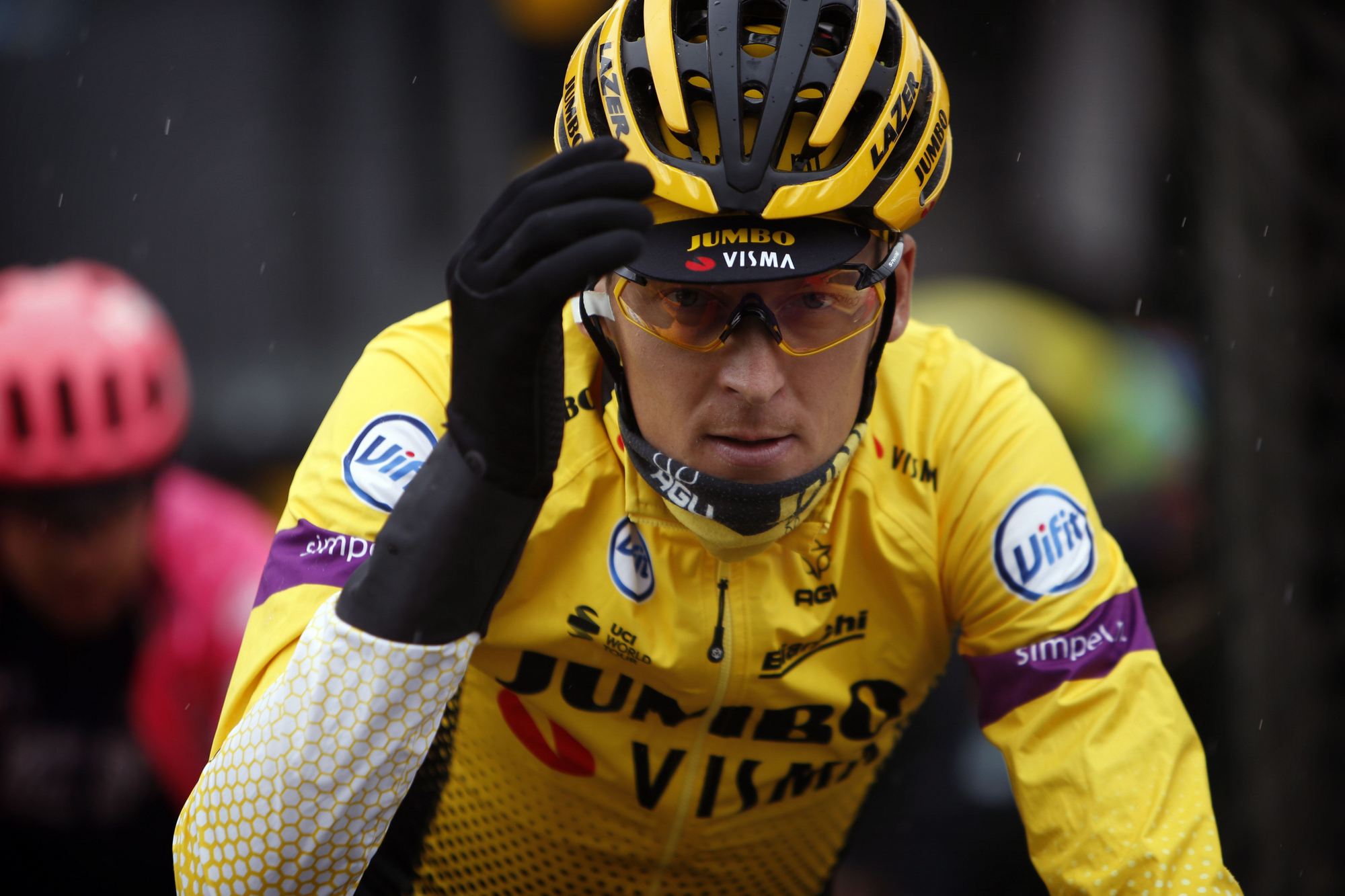
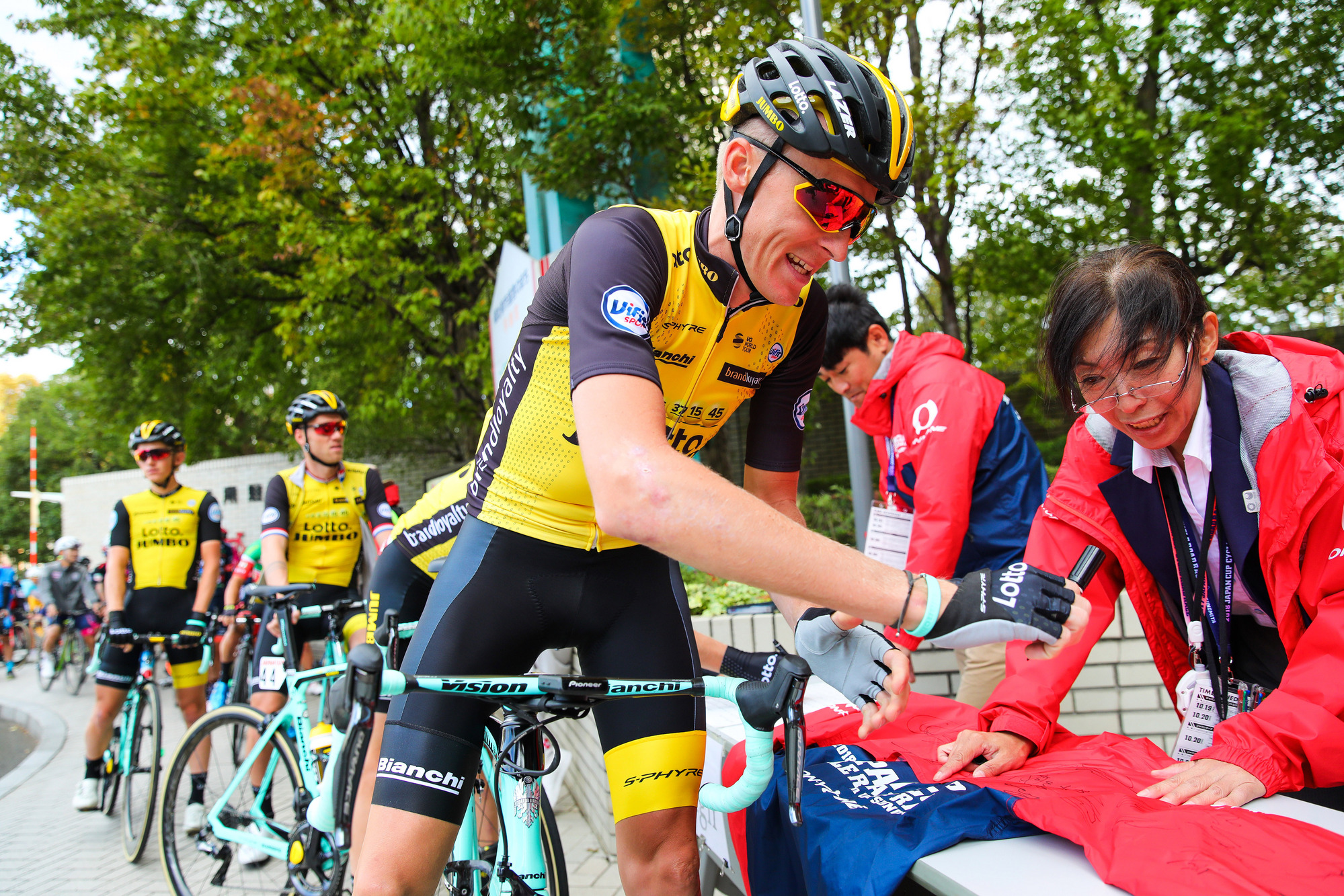
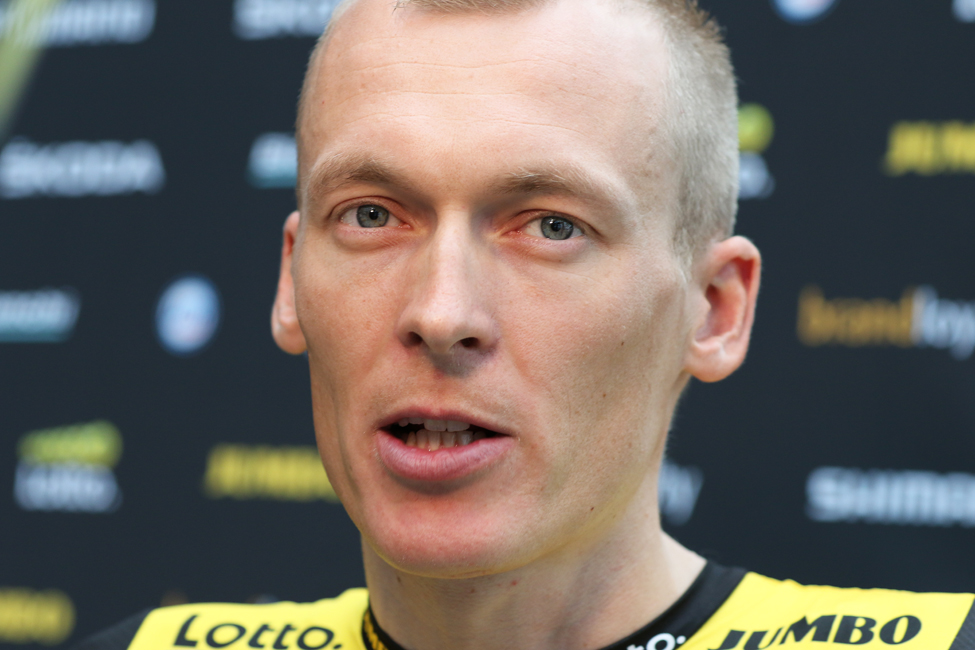
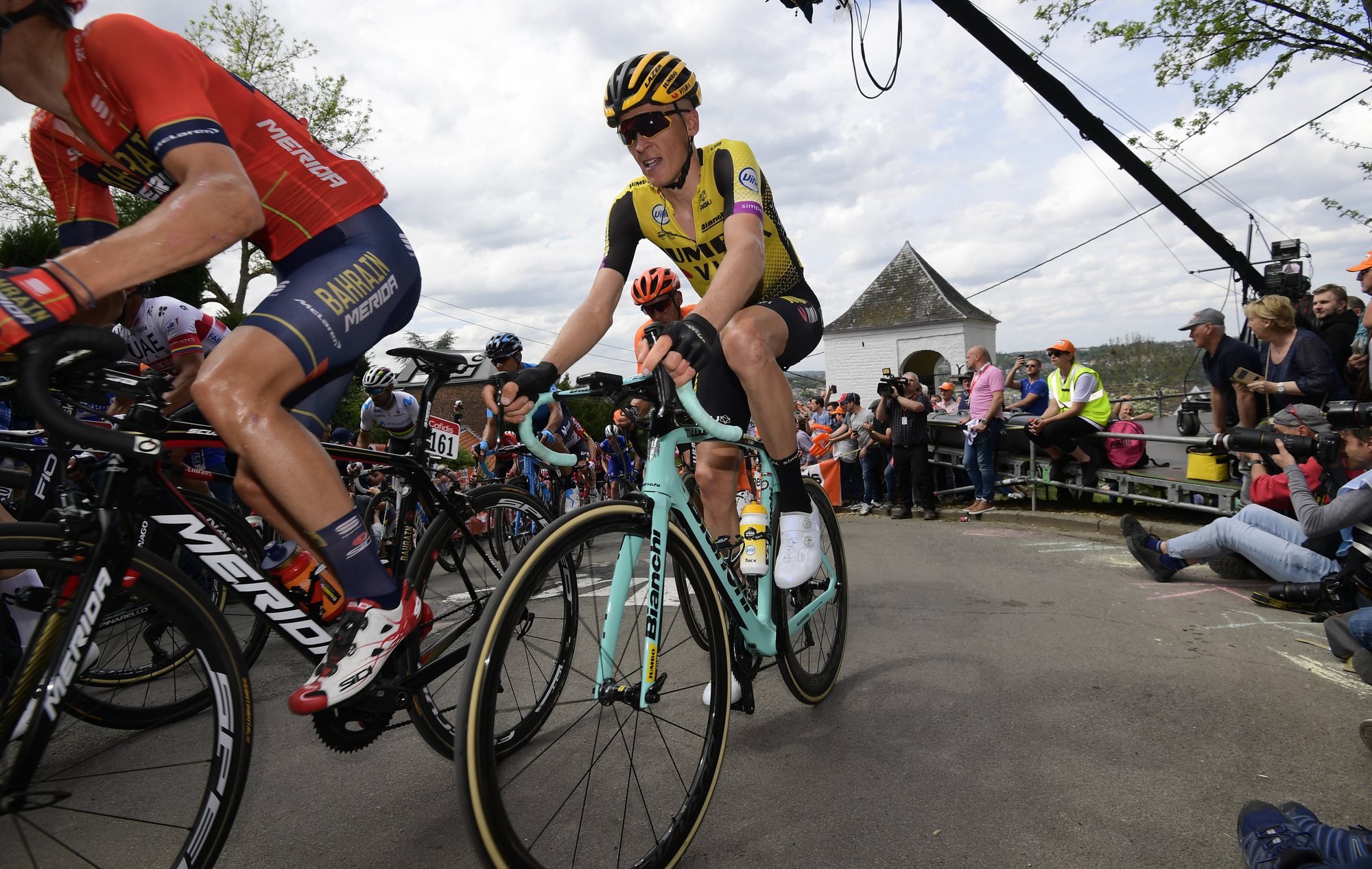
Jumbo-Visma are aiming to hit the ground running at the Vuelta a España on Saturday, attempting to clinch a full house of victories on the opening stages of all three 2019 Grand Tours, says Dutch team member Robert Gesink.
"We're heading out with a really strong team, just as in the other two Grand Tours where we managed to be up there from the start – that's what we want to do in Spain," Gesink told Cyclingnews earlier this month.
"Primož [Roglič] won the prologue at the Giro d'Italia, Mike [Teunissen] won the first bunch sprint at the Tour de France, and of course there's a team time trial at the [start of the] Vuelta. So we'll start off straight away at full gas, and I'm looking forward to that," Gesink said.
Jumbo-Visma also won the TTT at the Tour de France this year, but the team is looking longer term in the race, too, as it has already placed both Roglič and Steven Kruijswijk on the podium of Grand Tours this year, and so they go into the Vuelta with strong GC hopes.
Kruijswijk has gone close in Spain before, too, just missing out on the Vuelta podium last year in the course of building up a series of steadily improving Grand Tour GC results: ninth overall at the Vuelta in 2017, fifth at the 2018 Tour, fourth at last year's Vuelta and then third at this year's Tour.
Roglič, on the other hand, has never raced the Vuelta before. But the Slovenian's brace of 2019 Giro stage wins, his early spell in the leader's jersey and third place overall on the final podium in Verona also give grounds for optimism in Spain.
Just 13.4 kilometres long, the opening team time trial on Saturday is notably shorter than the one at the Tour, which was 27 kilometres. But it has a similarly urban, flat format, winding through the coastal city of Torrevieja in south-east Spain, and, just like in Brussels, Jumbo-Visma will be looking to shine again.
Get The Leadout Newsletter
The latest race content, interviews, features, reviews and expert buying guides, direct to your inbox!
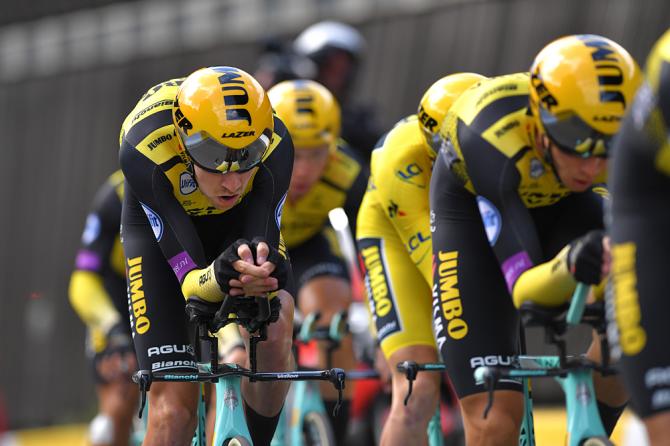
A return to Grand Tour racing
As for Gesink personally, the veteran Dutchman is heading back into Grand Tour racing after his initial plans to take part in the Giro d'Italia were scuppered by a high-impact crash at Liège-Bastogne-Liège, breaking his pelvis and collarbone.
Gesink has had some bad injuries in the past, and the Dutch climber says he has been able to use that experience to keep things in perspective – and to be optimistic about his chances in Spain on the comeback trail.
"It's all step-by-step," he said. "Once [in 2016], I had a bad crash at the Tour de Suisse, where I got concussed, and missed the Tour, and then went to the Vuelta.
"I felt really bad all the way up to the Vuelta, but then I won the 'queen stage' there, got second at Covadonga, and third somewhere else [Llucena]. Somehow in that race, all that hard work and suffering I'd had beforehand came out well."
As for the 2019 Liège crash, Gesink recalled, "I went down on a descent, just before things really hotted up in the race, in what was cold and wet weather. My pelvis was broken in three places on the right-hand side, and the head of the femur had smashed through the socket at the top, so I couldn't walk," he said, before adding in a rather wry tone: "I also broke my collarbone.
"If it had been just that and I'd done my collarbone like [Egan] Bernal broke his [just before the Giro], maybe I could have done the Tour."
But with a badly broken pelvis, Gesink moved into recovery mode, looking ahead to the Vuelta a España, which he last rode in 2016.
"I was in bed for two weeks, and I started by walking on crutches, working full gas to get through it all as soon as possible," he recounts. "You definitely have good and then less positive days. At the end, you just go into the same mode as you always do, and just try to think you can get better than you were the day before."
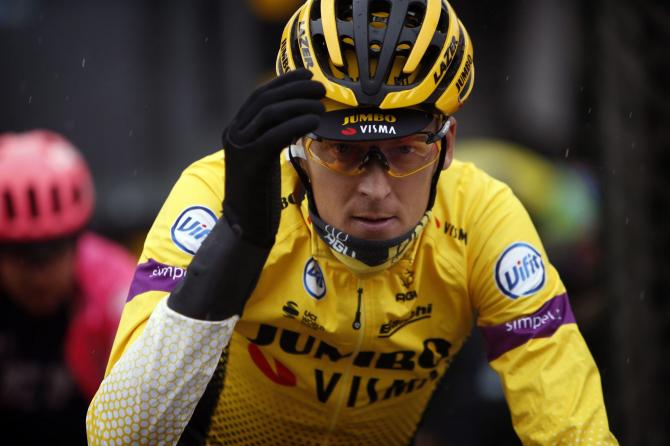
Even with his bad crashes in the past, Gesink says that he hasn't developed a particular attitude towards trying to recover from injuries.
"I'm guessing if you talked to Tom Dumoulin [Team Sunweb] about crashes, he'd also have a lot of stories. It's just unfortunate. Everybody gets their share of them," he said.
"Shit happens, and there's no other option, right? At some point you accept it. Even if you said, 'This was my last race,' you'd still have to recover and learn to walk. Then, when you've learned to walk, and you ride out and you start to enjoy your riding again, the next step is to try to get better.
"It's unfortunate that all the work you've done before, you have to build it up again. But it's a process. If it had just been a sore knee, then that would also have been the worst thing in the world, because it always feels that way – like the worst thing that can happen to you at a particular time."
Putting things in perspective
Gesink says that he is nevertheless able to put things in perspective, which helped his determination to get back on the road.
"I did think about the moment I broke my femur, which was way worse, so you think, 'Well, if you can come back from that and win some of the biggest races in the world, then something like this is not going to stop me.'"
With the process now complete and Spain to look forward to, Gesink said: "Fortunately, I'm back on the bike, back in the bunch, and I've done a lot of hard work. My basic form is OK, but pre-Tour de Pologne I was definitely missing some high intensity and that's the difference between training and racing. You hurt yourself when you're training, but when you're racing it's others that are hurting you."
Rolling down the start ramp in Torrevieja on Saturday will represent a key moment for Gesink, as well as a big team challenge. It's been his longest spell away from the Grand Tours in four years – of which Gesink's raced 15 – and both he and Jumbo-Visma can expect to be in the thick of the action.
Alasdair Fotheringham has been reporting on cycling since 1991. He has covered every Tour de France since 1992 bar one, as well as numerous other bike races of all shapes and sizes, ranging from the Olympic Games in 2008 to the now sadly defunct Subida a Urkiola hill climb in Spain. As well as working for Cyclingnews, he has also written for The Independent, The Guardian, ProCycling, The Express and Reuters.
